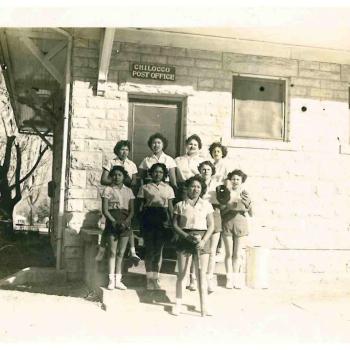A new Pew report has confirmed what we’ve known was coming for the American family: a majority of American children now live in homes without married parents in their first marriage. The reasons behind this “new normal” of the broken American family are complex but are certainly related to factors including the “sexual revolution” that began in the 1960s, the advent of no-fault divorce, and generational patterns of people having children out of wedlock.
As The Washington Post and virtually all observers note, single parenting (a burden carried mostly by women) is a major feature of this massive change in American family structure. Children of single parents generally face “more poverty, more instability, and more problems at school, among other things,” the Post notes. Government initiatives seem unlikely to help, although one hopes that policies could at least stop discouraging the establishment of stable marriages with children. W. Bradford Wilcox and others have proposed some common-sense measures on this front that are likely to win bipartisan support. [Follow the blog of the Institute for Family Studies for some of the best thinking on political and cultural family reform.]

The new normal for children and broken families creates serious problems and substantial opportunities for the church in America. Church leaders will need to strike a delicate balance: caring for adults and children affected by divorce and single parenthood, while fostering an alternative culture where two-parent families and sex only in the context of marriage are the norms. This is not an easy balance to achieve. On one extreme, the church could send a “Modern Family”-type message: any and all family arrangements are as good as another, as long as you have love. At the other extreme, the church can subtly (or overtly) send the message that only those from intact families will be fully welcomed by the church, or (worse) be welcomed by God.
The church’s stance on these matters can come out in the simplest ways, such as the terms in which pastors talk about their congregations. Does the pastor ever acknowledge and validate the presence of single moms in sermons or in invitations to prayer? The new normal must also be addressed structurally, in the venues the church offers single and/or divorced parents for fellowship. Are never-married singles with no children directed toward the same fellowship groups with singles who have children? Do you try to pair single parents with married parents? Are divorced adults in the same category as singles? These questions will not always have clear answers, but pastors will have to give serious thought to how they will best minister to those God brings into their community.
Christians have to face facts: broken families are no longer anomalous in America. More than ever, new people coming to your church will be keenly aware of their need for restored community and family support. More than ever, the church will serve functions reminiscent of what two-parent and extended families have historically served. In coming decades, churches will need to become alternative, redeemed communities of gospel proclamation, loving assistance, and healing for those hurt by the dissolution of America’s families.
[Friends, you can sign up here for my Thomas S. Kidd author newsletter. Each newsletter will update you on what’s happening in the world of American, a religious and political history, and current events. It will contain unique material available only to subscribers, and each will help you keep up with my blog posts, books, and other writings from around the web. Your e-mail information will never be shared. Thanks!]












